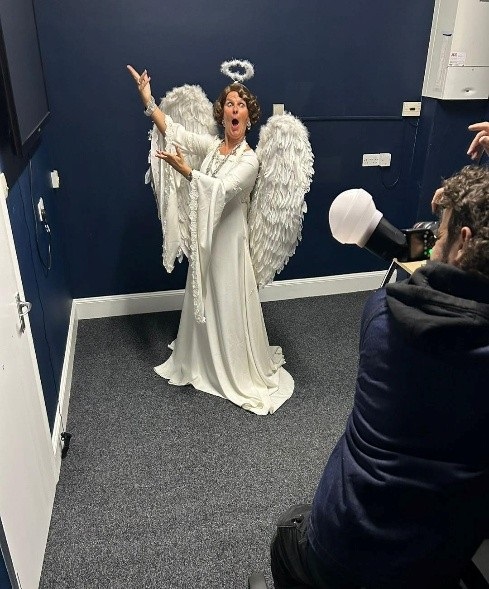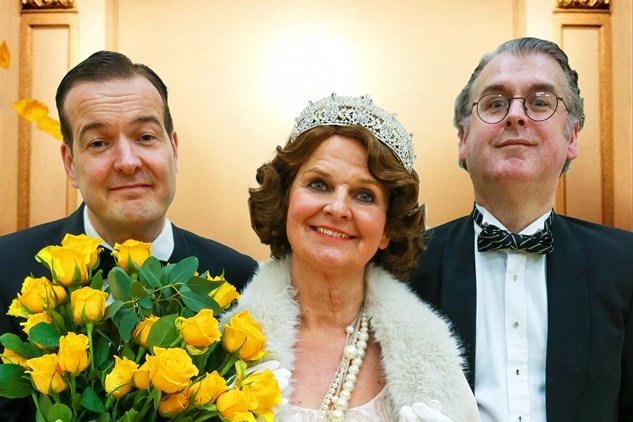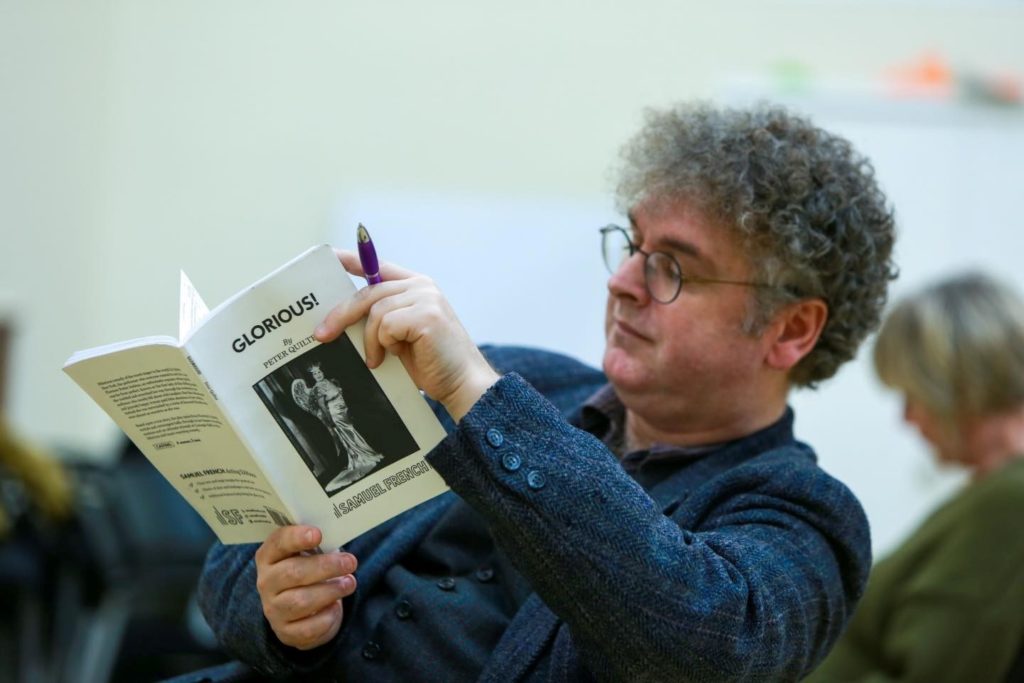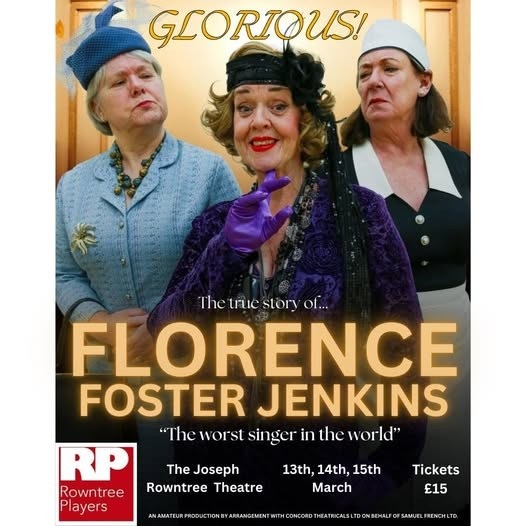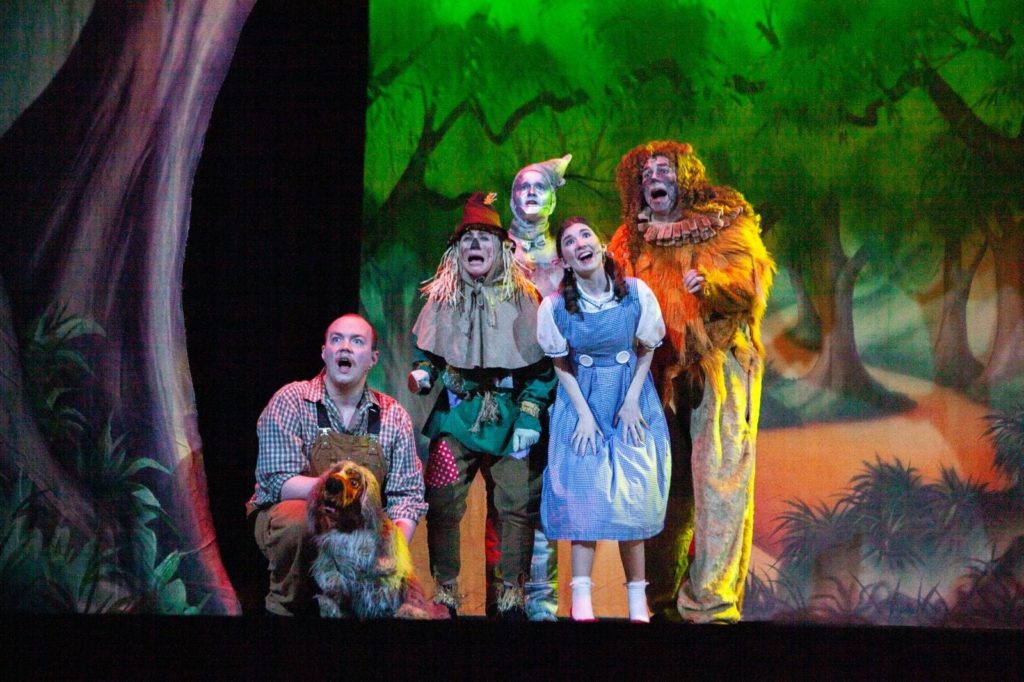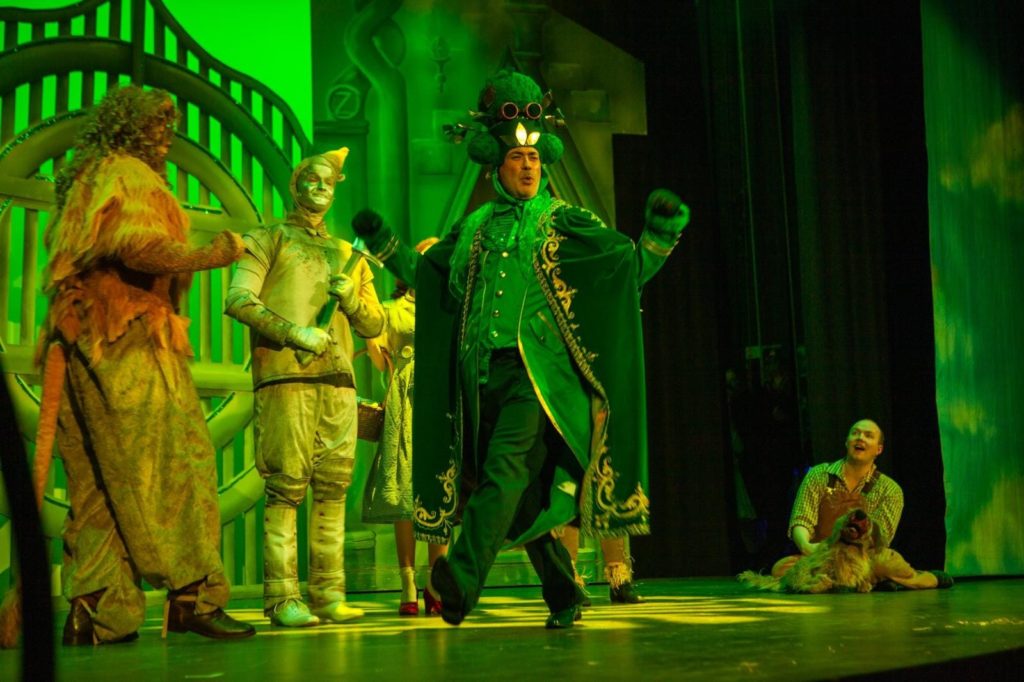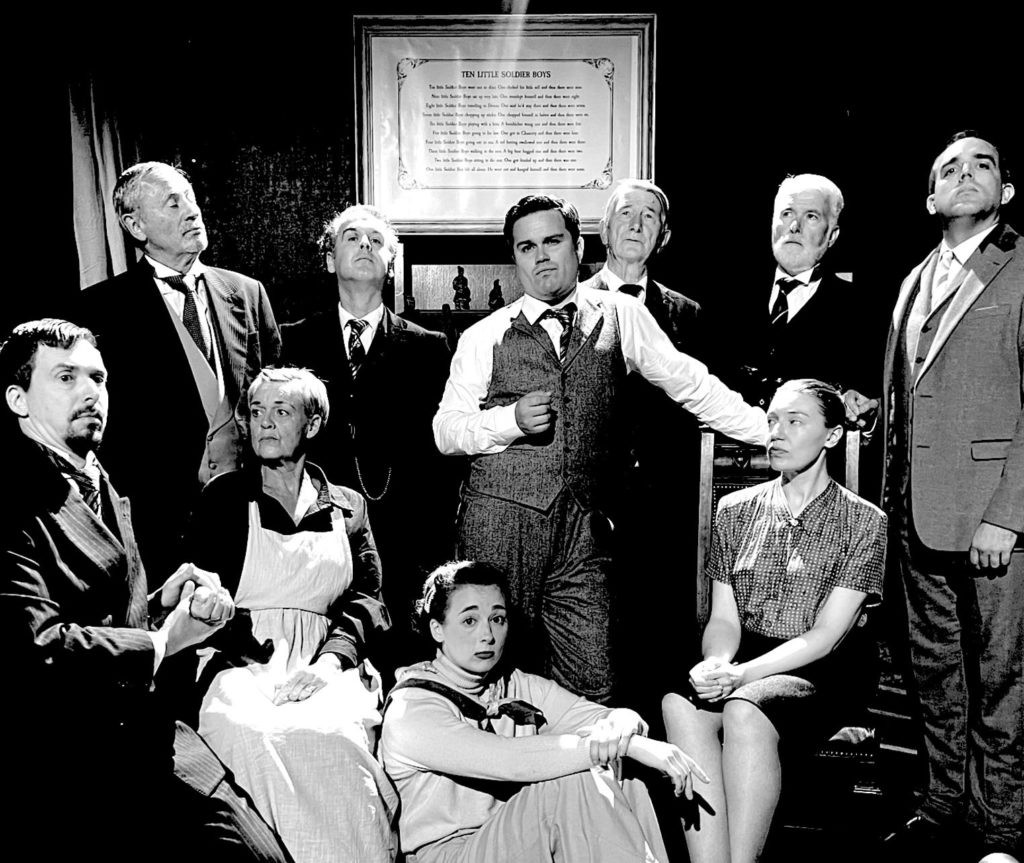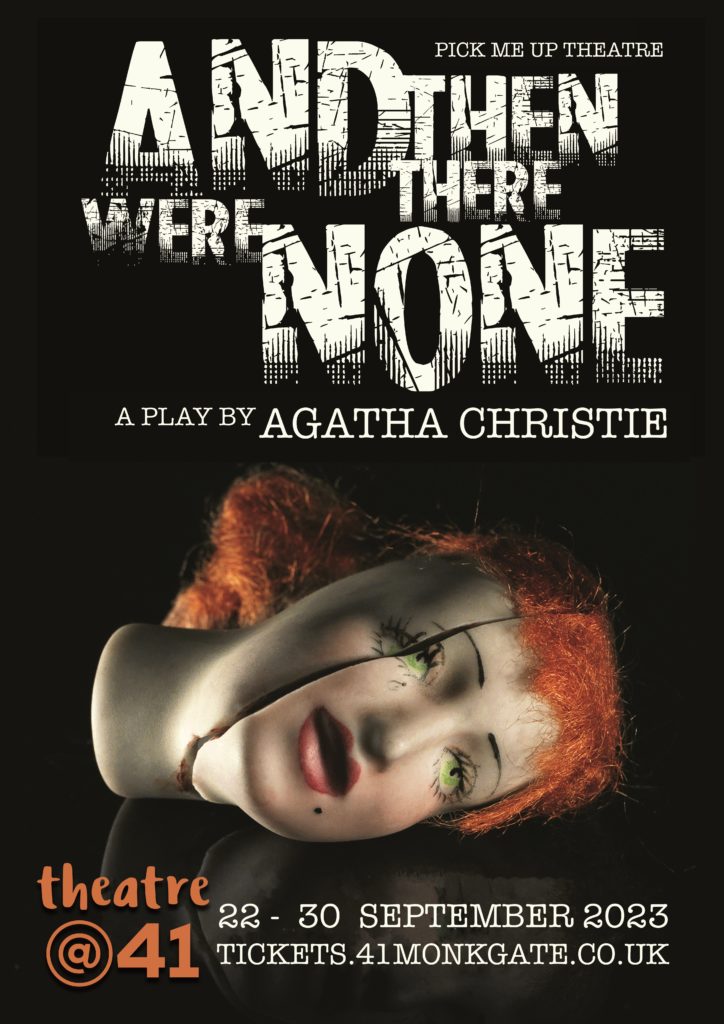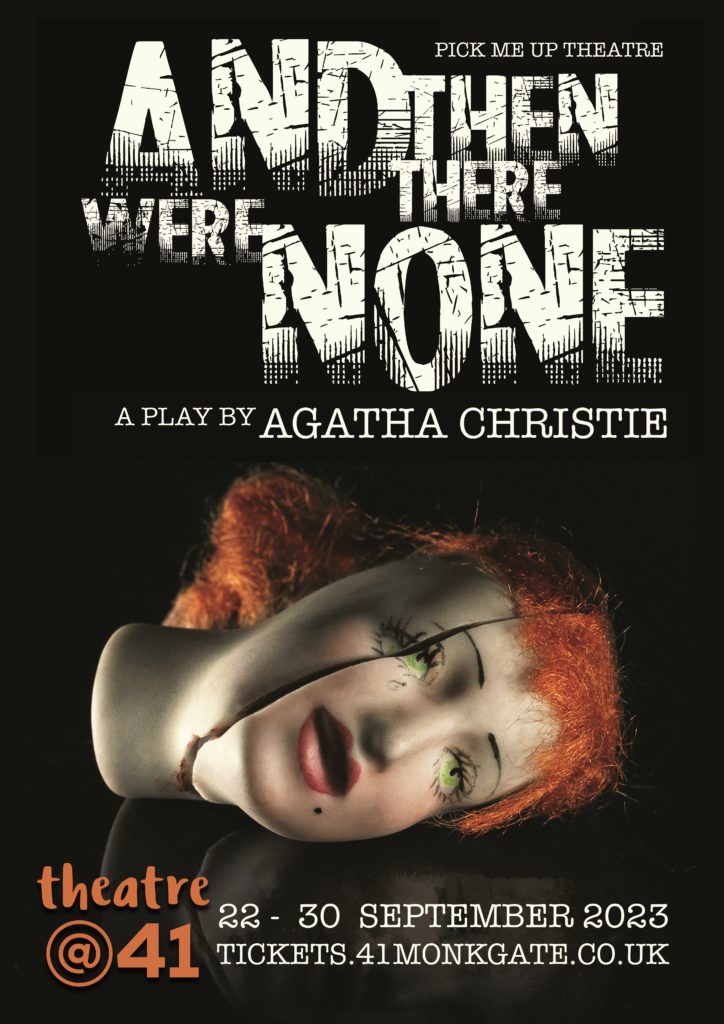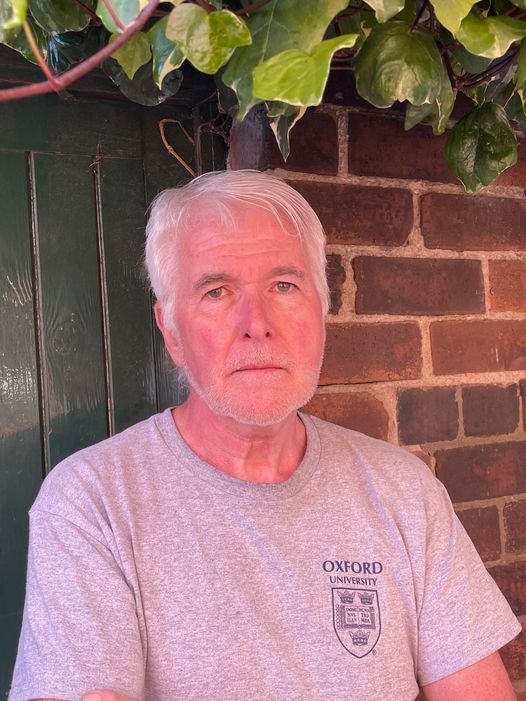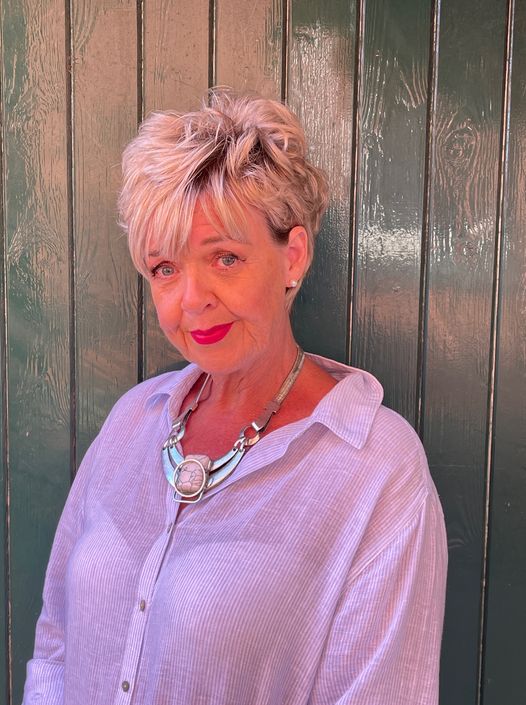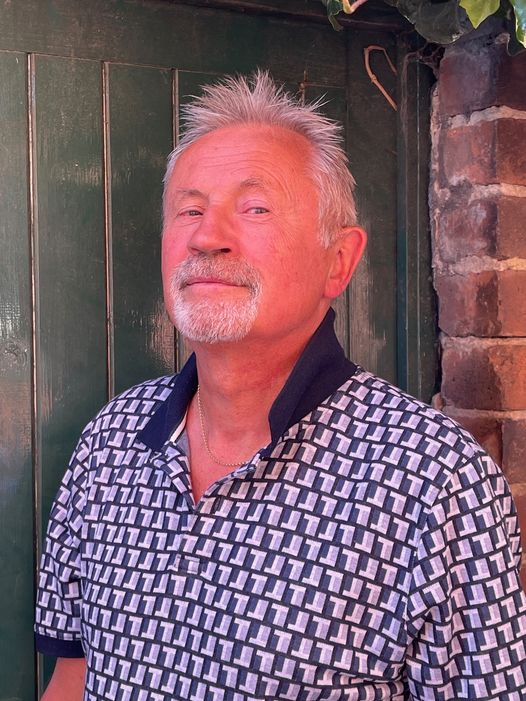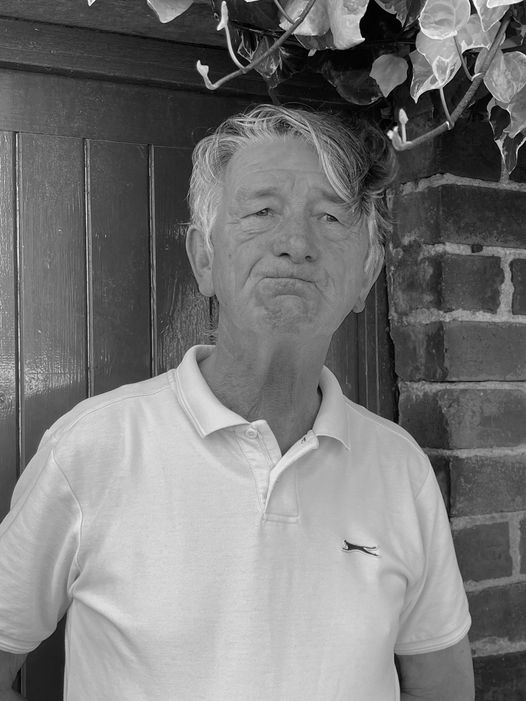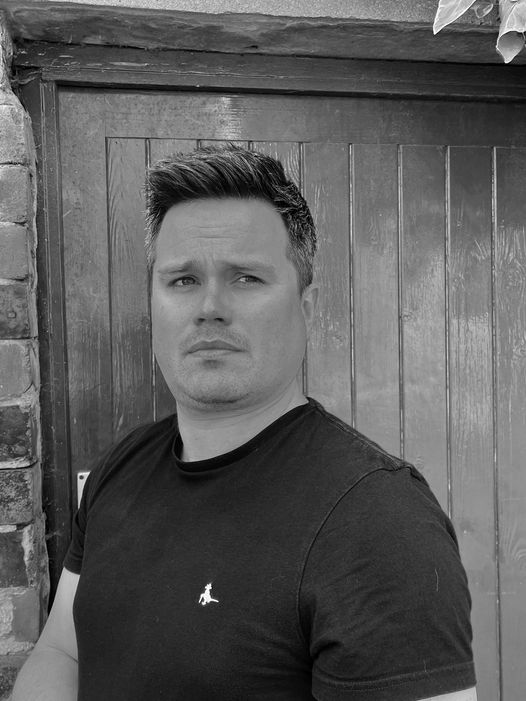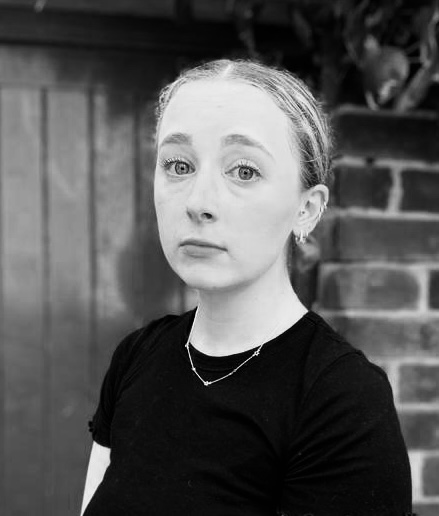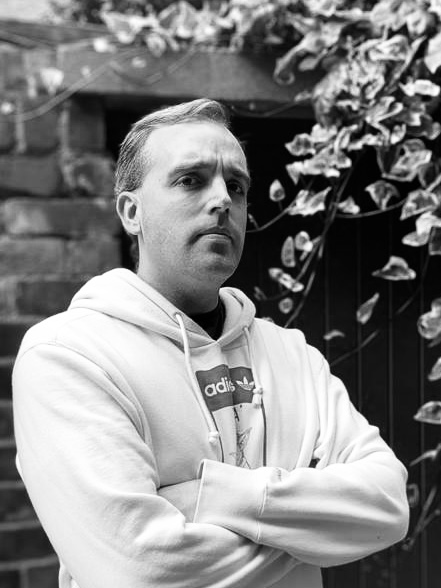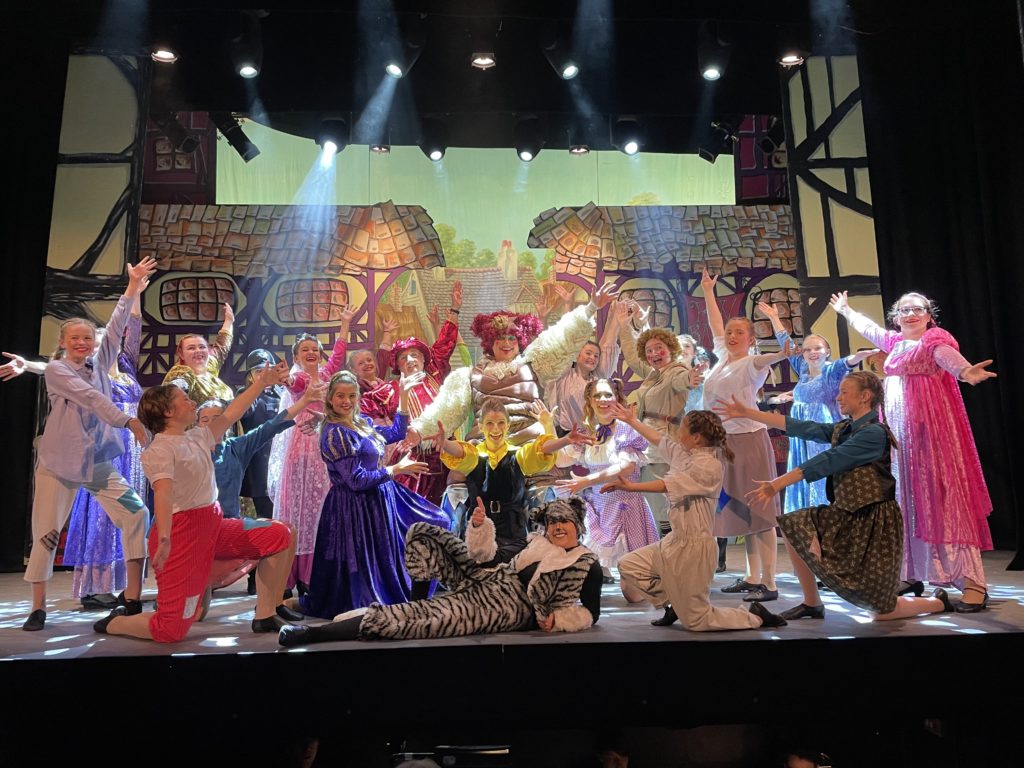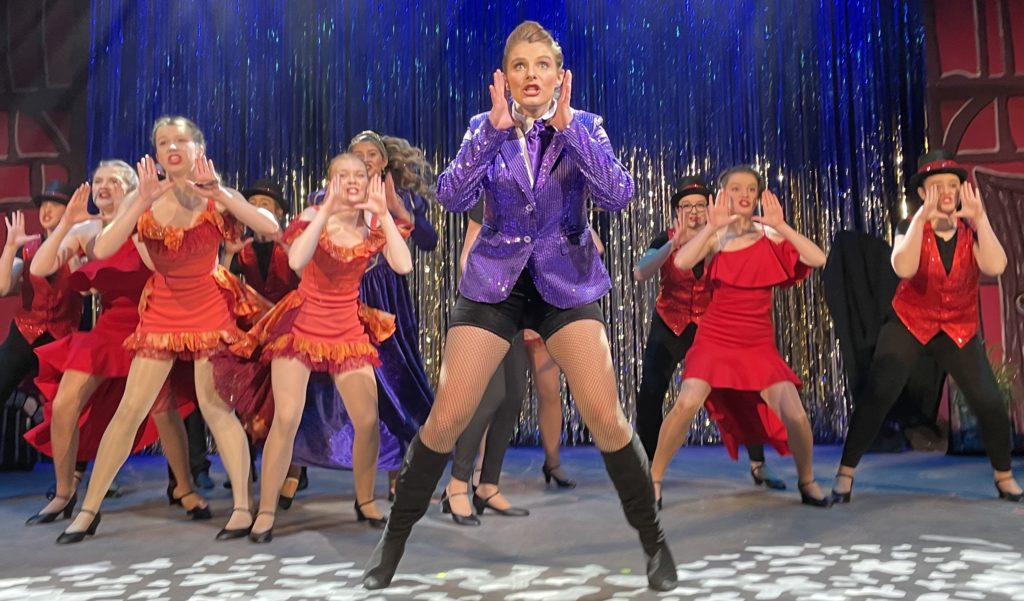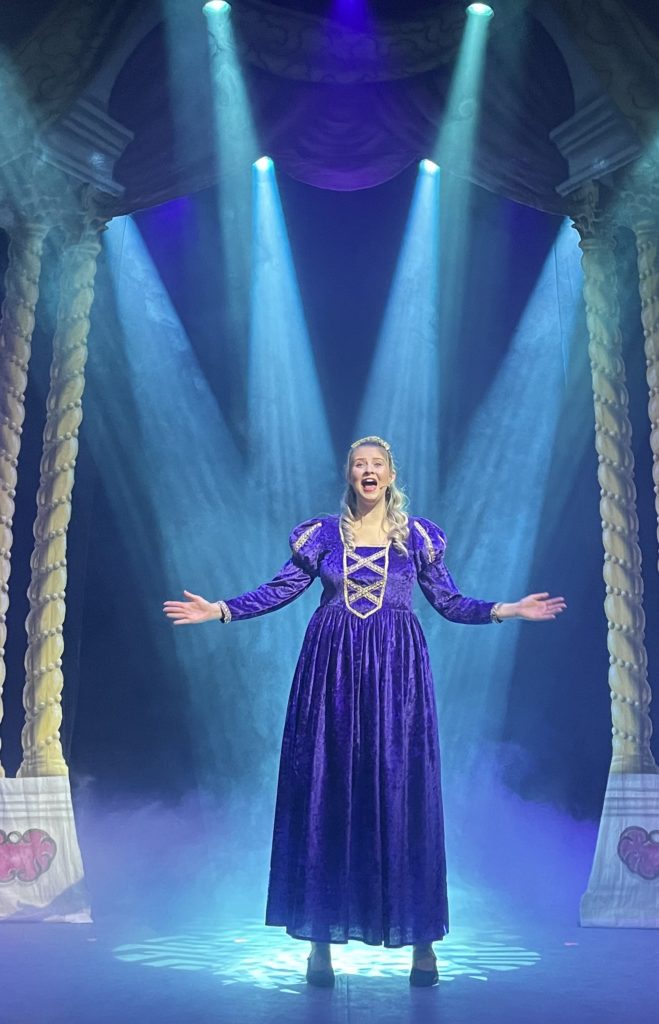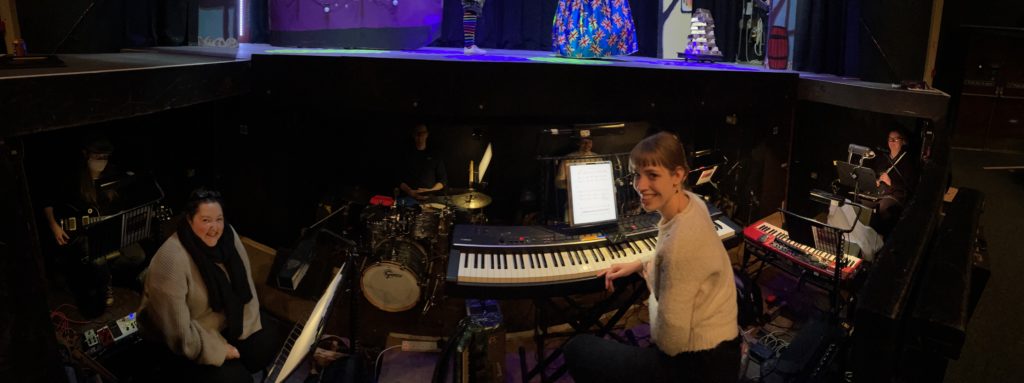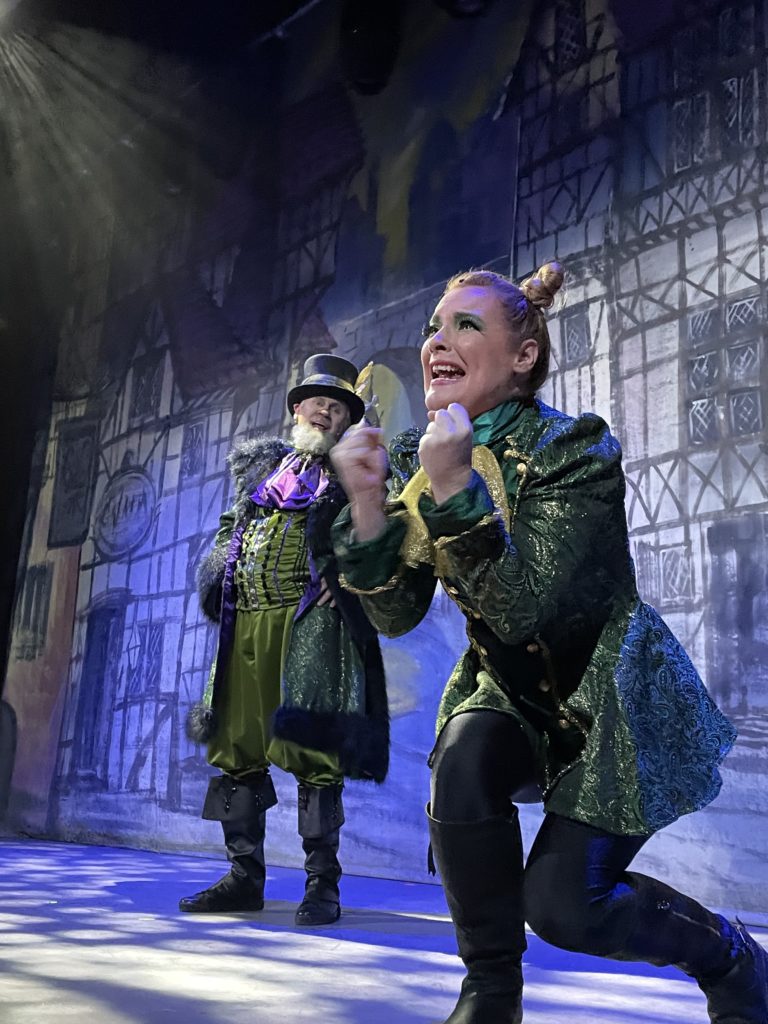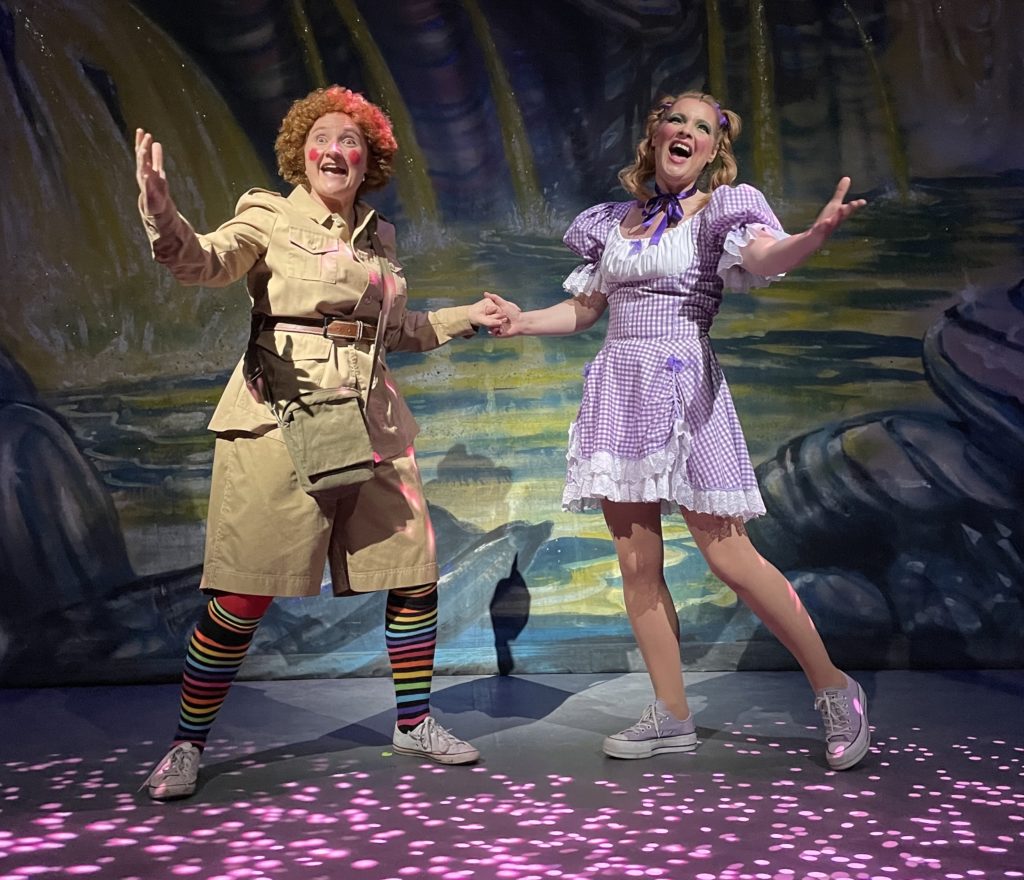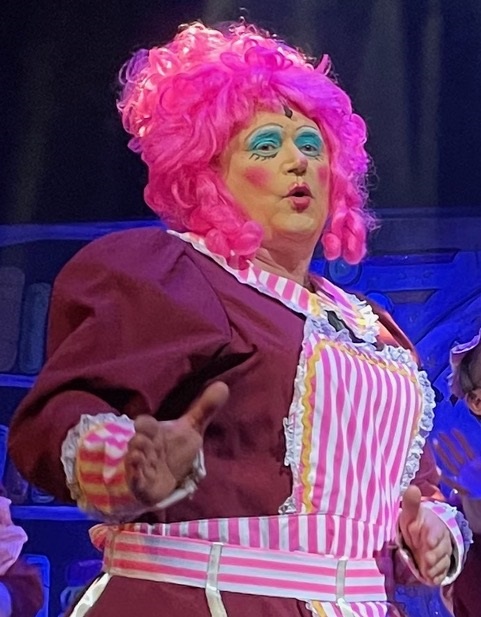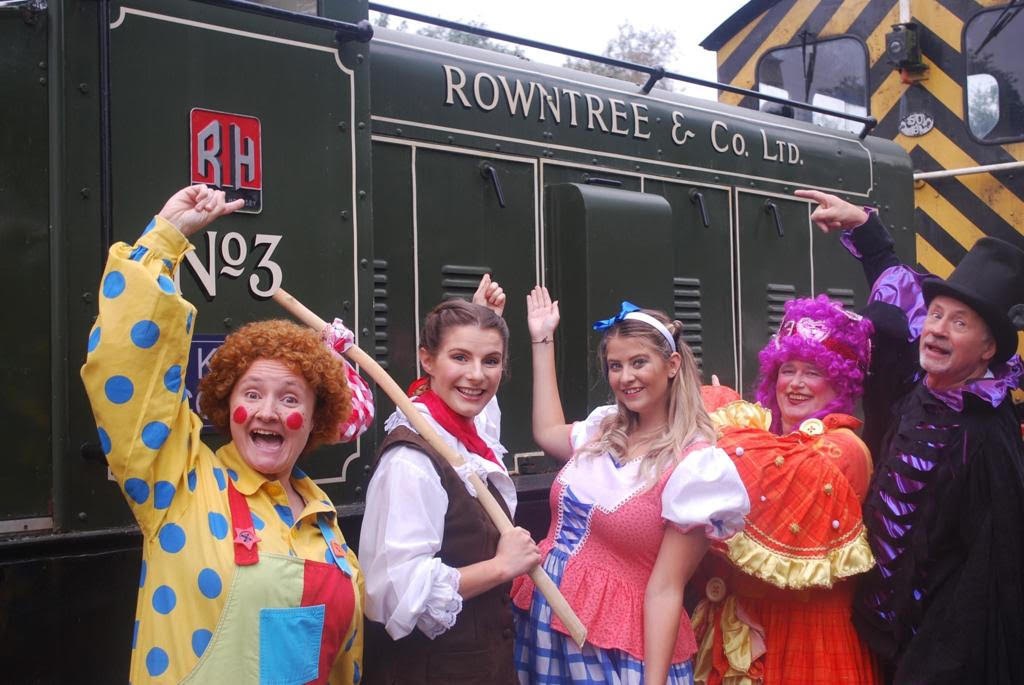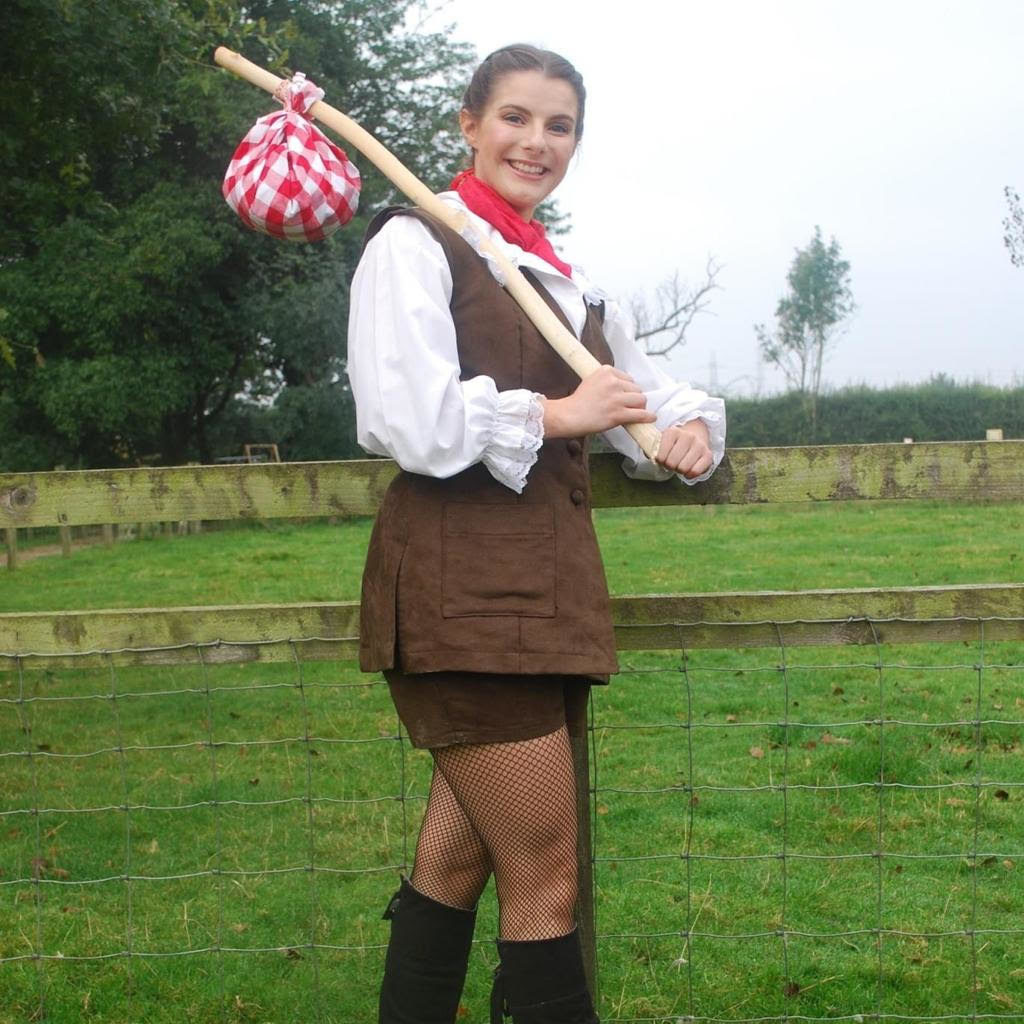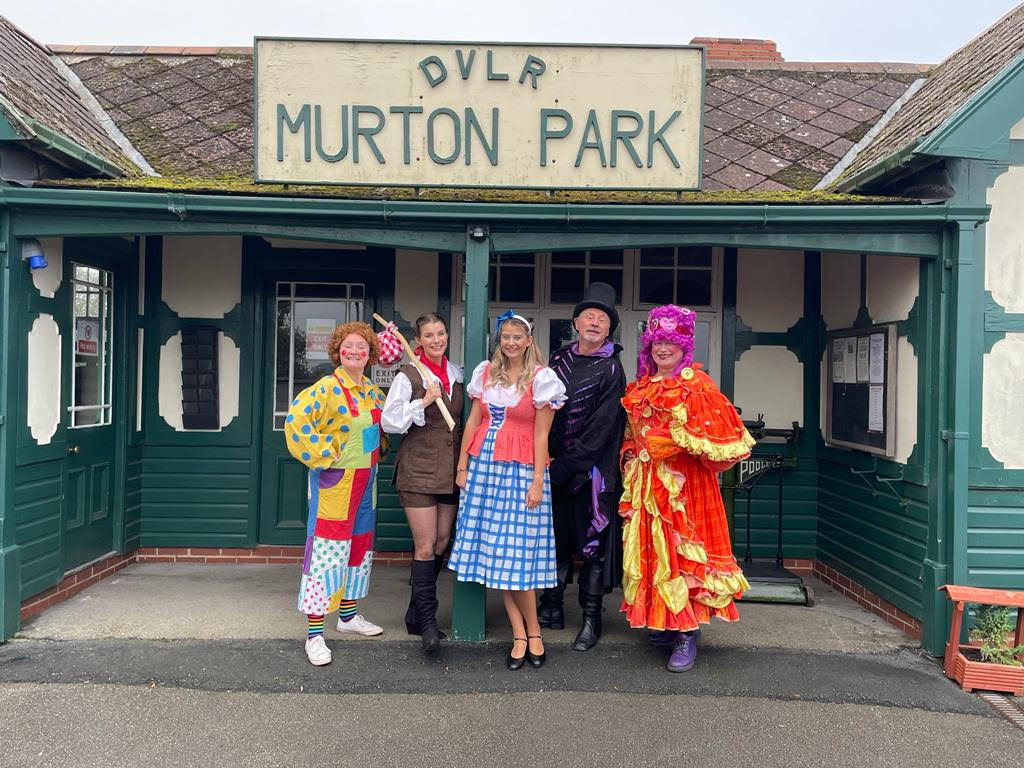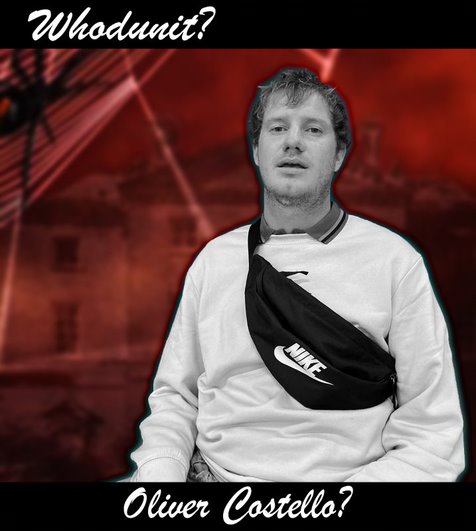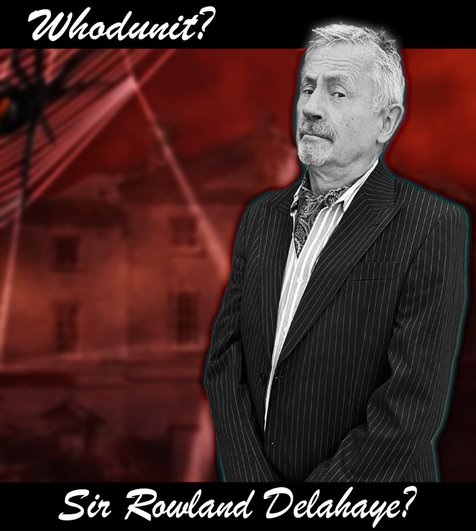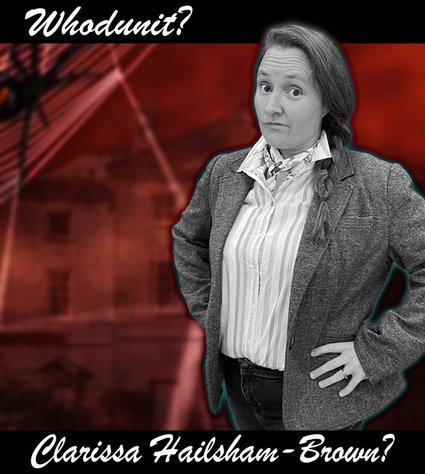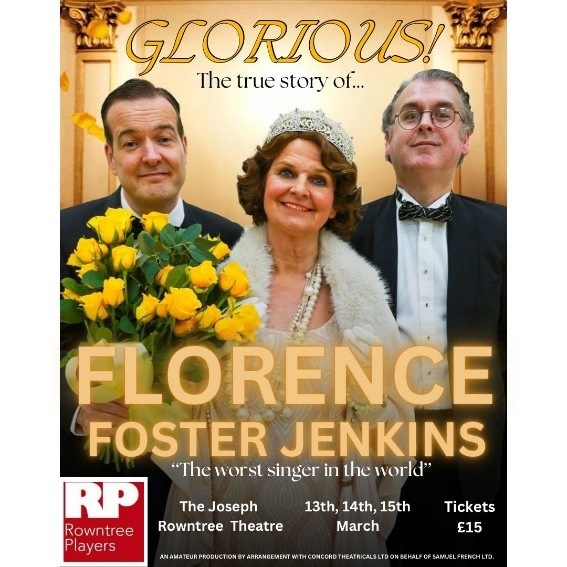
Neil Foster’s Cosme McMoon Jackie Cox’s Florence Foster Jenkins and Mike Hickman’s St Clair Bayfield in the Rowntree Players poster for Glorious!, mirroring the composition of the poster for Stephen Frears’ film, by the way
GLORIOUS! is the true story of 1940s’ New York socialite heiress Florence Foster Jenkins, “the worst singer in the world”, yet cherished by Cole Porter and Tallulah Bankhead, no less.
You may recall Meryl Streep’s Oscar-nominated tour de force in Stephen Frears’ 2016 film or Hull actress Maureen Lipman in the West End premiere of Peter Quilter’s 2005 play with music. Now is the turn of Jackie Cox in Martyn Junter’s elegant production for Rowntree Players.
Meanwhile, as chance would have it, across the Pennines, Wendi Peters is playing Florence in a revised version of Quilter’s joyous drama at the Hope Mill Theatre in Manchester until March 30.
In her day, bemused audiences would great the screeching warbling of the deluded Florence with mocking laughter, but in Glorious! the laughter is reserved for Quilter’s script, whose wit is even sharper than Florence’s ever-enthusiastic but far-from-pitch-perfect singing.
We first encounter Cox’s flamboyant Florence in her grand hotel suite abode, where her constantly supportive manager and long-time companion, failed British Shakespearean actor St Clair Bayfield (Mike Hickman), has arranged for dapper Cosme McMoon (Neil Foster) to be her new piano accompanist.
Apparently, St Clair has been cut from the streamlined Manchester production, but Hickman makes you wonder why as he continues his run of impressive performances with this arch, dry-humoured fixer.
Foster’s McMoon takes his place behind assorted grand pianos through the show, his face a picture of alrm when he first encounters the shocking noise of “the First Lady of the sliding scale”.
It becomes a running joke how McMoon’s eloquence allows him to seemingly flatter Florence by leaving out the exact word that would insult her and yet impart that meaning to the audience. Here Quilter’s delicious, mischievous writing is at its best, along with the moment he plays a delightful trick on the audience in a funeral scene, turning sombre repose to chuckles.
Florence loves to sing, loves to dress up, loves to entertain, loves to raise money for charity, loves music, but she does not take kindly to criticism, vetting her potential audiences by restricting entry to invitation only to her notorious balls.
She is shielded from the truth by kindly/sycophantic friends, such as Dorothy (Jeanette Hunter in a double act with a stuffed dog), but in Cox’s hands you cannot but warm to her passion for performing, even if you cover your ears when another high note falls off the cliff edge.
What’s more, like comedian Les Dawson’s deliberately maladroit piano playing, it takes skill to sing always tantalisingly either side of the right note. Director Hunter encouraged Cox to worsen her singing in rehearsal, advice that pays off in Cox’s indestructible performance.
Her Madame is neither an operatic diva, nor a circus freak show, more a singing equivalent to Olympian ski jumper Eddie “The Eagle” Edwards in still giving pleasure for all the faults in her technique. Quilter brings so much heart her character and to his storytelling, summed up in a poignant finale where we are invited to think how Florence, by now in angel wings for her triumphant Carnegie Hall farewell, thought she sounded when she sang.
That angelic frock is but one of many striking costume choices by Julie Fisher and Cox herself, matched by the set design with yellow walls and green doors for Florence’s hotel apartment. Abundant flowers adorn the stage, courtesy of Robert Readman and cast members, and if Cox’s singing puts teeth on edge, the soothing recorded piano arrangements by Sam Johnson are of the highest order.
Martyn Hunter pops up in dapper dinner jacket to play a CBS news reporter, Graham Smith has a cameo as the Undertaker, and Quilter’s skill at crafting humorous characters is further affirmed by Moira Tait’s Maria, Florence’s Mexican maid, who sticks stoically to speaking Spanish – aside from “sandwiches” – but understands every English utterance in another running gag.
Chris Higgins draws boos for her performance as Mrs Verrinder-Gedge, not for the quality of her acting, be assured, but for her music snob’s rude, mean-spirited interruption of Madame’s concert.
Not boos, but cheers, even tears, accompany Florence’s swan song – fitting for Rowntree Players’ polished, amusing, ultimately poignant show. Box office: 01904 501935 or josephrowntreetheatre.co.uk.

